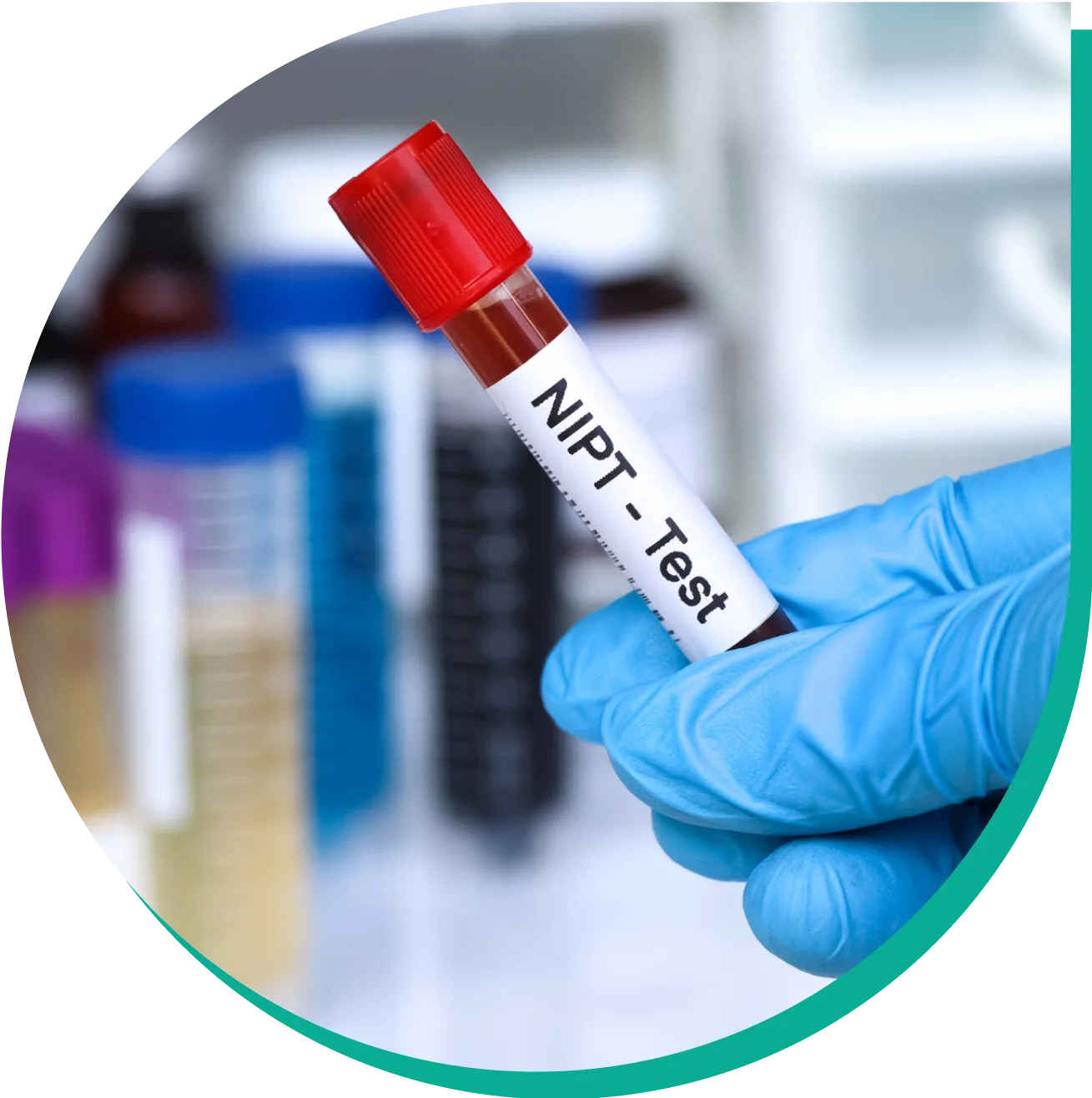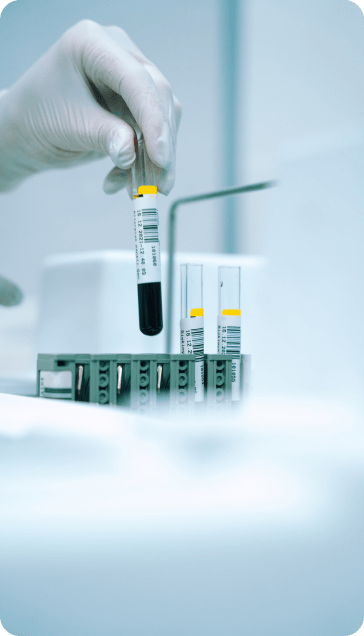
Al Borg Diagnostics
What is the NIPT test?
Pregnancy can be a challenging period accompanied by various difficulties, but undoubtedly, women are interested to see their fetuses healthy. Therefore, some pregnant women choose to perform specific tests during pregnancy to ensure the health and safety of the fetus, including the NIPT test.
What is the NIPT test?
The NIPT test stands for Noninvasive Prenatal Test. This test is performed by taking a blood sample from the mother, which contains fragments of fetal DNA, where small portions of fetal DNA are in the mother’s blood. This NIPT test helps achieve certain objectives, such as determining the fetal sex or detecting chromosomal disorders. (1)(2)
The purpose of the test
After learning about the test, we will now explain the objectives for which the test is performed: (3)(6)
- Helps detect specific conditions in the fetus, such as Down syndrome, Edwards syndrome, Patau syndrome, and Turner syndrome.
- Can determine the fetal sex by comparing differences in the sex chromosomes.
- Identifies the presence of various chromosomal abnormalities without revealing the specific type of genetic disorder. Therefore, it is possible to determine the kind of congenital disease through other tests, such as chorionic villus sampling or amniocentesis.
Categories that should undergo the NIPT test
It is important to note that this test is optional. However, doctors usually strongly recommend it when certain risk factors are present, including: (4)
- Maternal age of 35 years or older.
- Personal or family history of chromosomal problems during pregnancy.
- Chromosomal abnormalities in either the mother or the father.
How is the test conducted?
It is worth mentioning that NIPT is safe and does not pose any risks to the mother or the fetus. Typically, the test is performed after the woman reaches the ninth week of pregnancy, approximately between the tenth and thirteenth weeks.
The procedure is relatively straightforward. It involves taking a blood sample from a vein in the mother’s arm and sending it to the laboratory for DNA analysis and detecting chromosomal abnormalities.
After receiving the test results, the doctor may request additional tests such as ultrasound imaging, first-trimester nuchal translucency screening, or amniocentesis. (5)
NIPT test results
Here is some information and details about the NIPT test results: (1)
- The test results are expected to be available after two weeks.
- The accuracy of the results varies depending on several factors in the mother, such as pregnancy complications or obesity. However, overall, it is highly accurate in detecting Down syndrome, with an accuracy rate of up to 99%. And its accuracy is slightly lower for detecting Edwards syndrome and Patau syndrome.
- Getting false negative results is extremely rare.
- The test results are provided in a detailed manner. For example, you may find the results indicating positive results or high risk, or negative results or low risk.
- In some cases, the results may not be conclusive due to insufficient fetal DNA in the mother’s blood or difficulty in determining fetal DNA. In such cases, the test may need to be repeated.
Is there any risk for the NIPT test?
Since this test is safe for the health of the mother and the fetus, it only requires a blood sample from the mother. (1)(2)
You can visit any Al-Borg Diagnostics branch to get this test or choose a Pregnancy Follow Up package that suits you, along with additional tests and analyses conducted by a qualified and trained medical team.
References:
1. https://my.clevelandclinic.org/health/diagnostics/21050-nipt-test
2. https://medlineplus.gov/genetics/understanding/testing/nipt/#:~:text=Noninvasive%20prenatal%20testing%20(NIPT)%2C,in%20a%20pregnant%20woman’s%20blood.
3. https://www.pregnancybirthbaby.org.au/non-invasive-prenatal-testing-nipt#test-for
4. https://www.healthline.com/health/pregnancy/nipt-test#what-results-mean
5. https://www.whattoexpect.com/pregnancy/pregnancy-health/noninvasive-prenatal-testing/
6. https://www.genomicseducation.hee.nhs.uk/blog/what-is-nipt/
Check your health with
Pregnancy Follow Up Package




